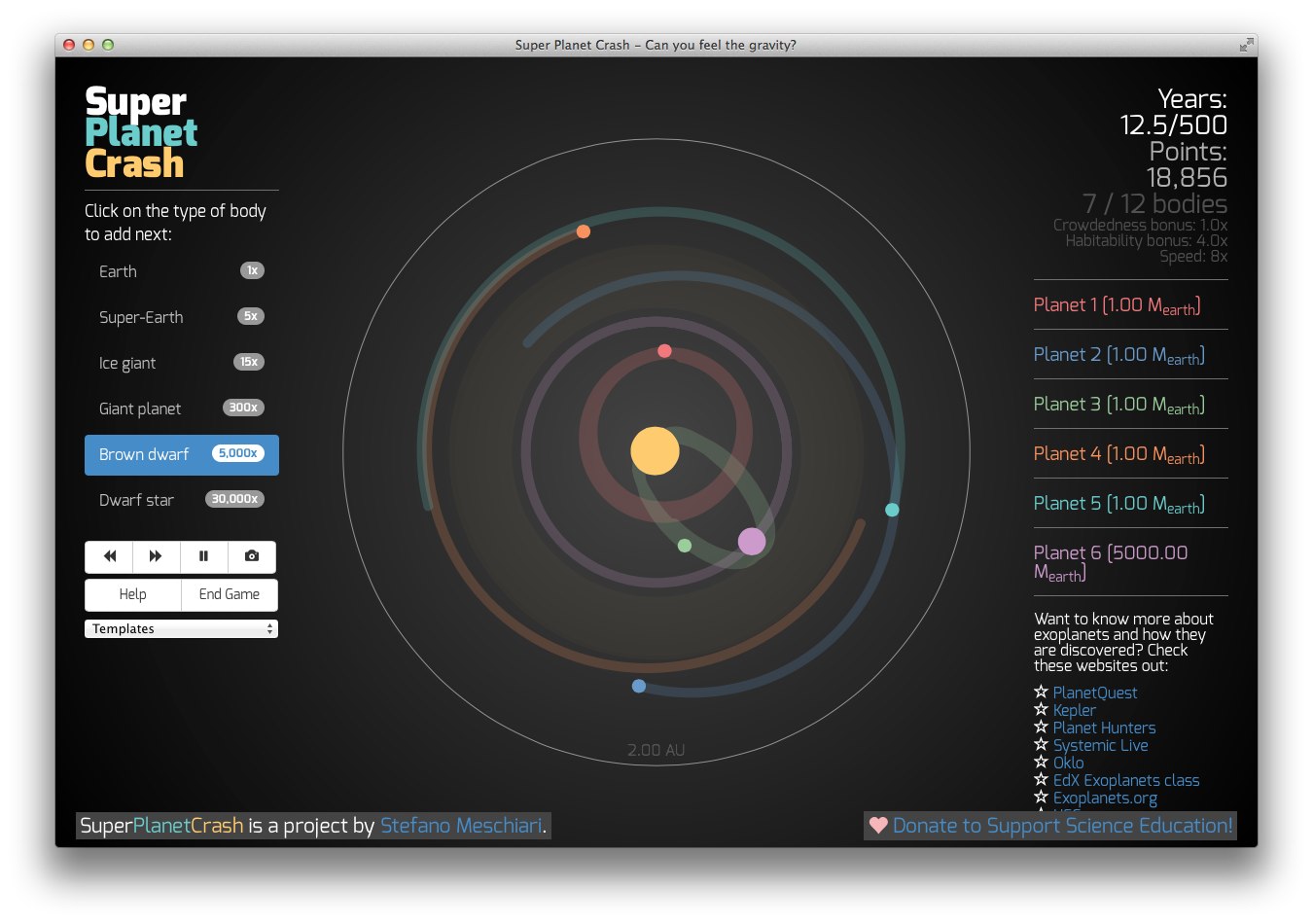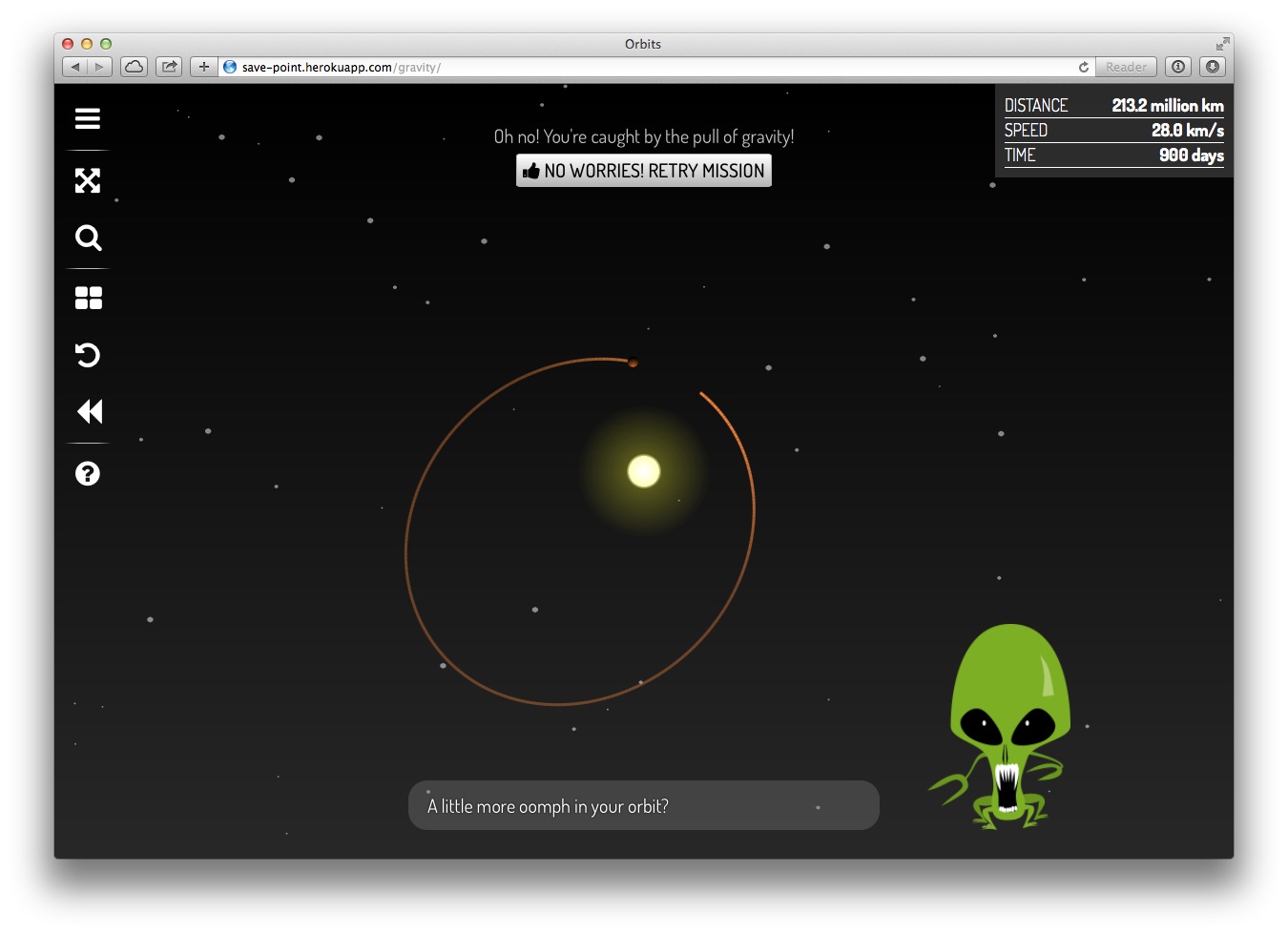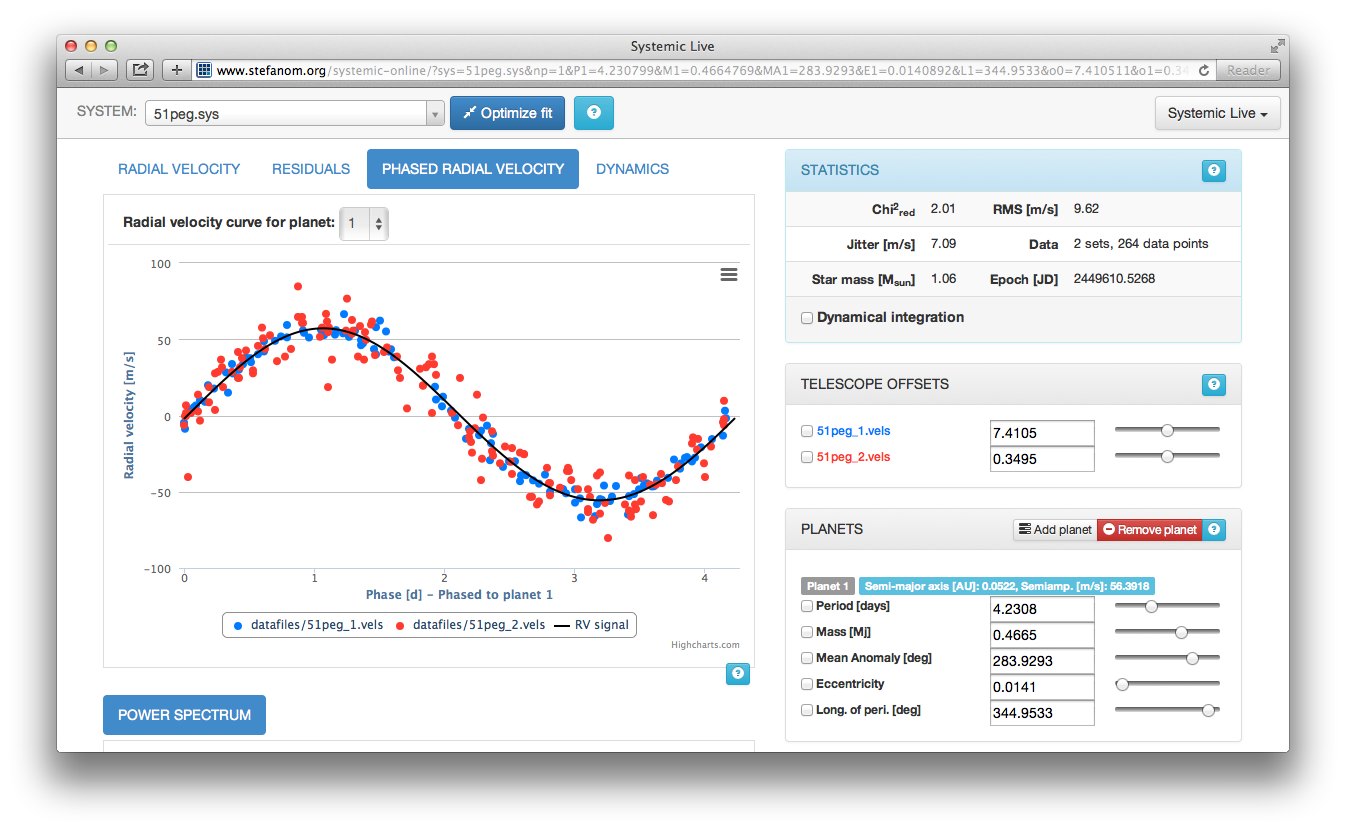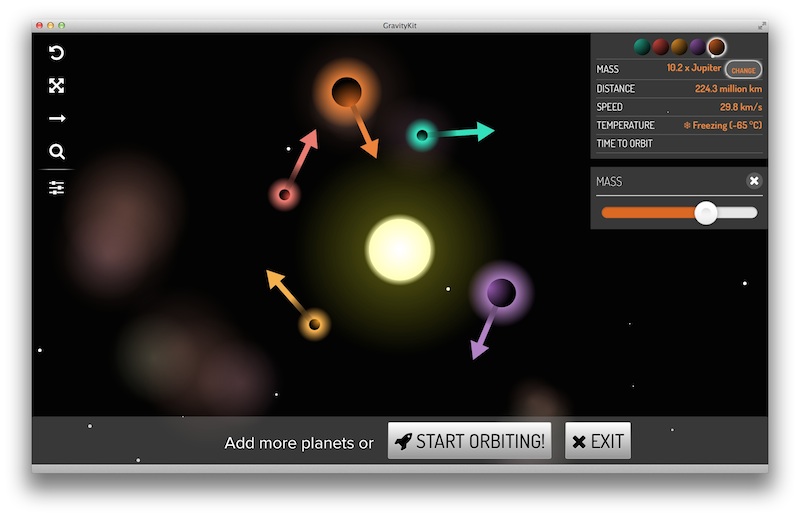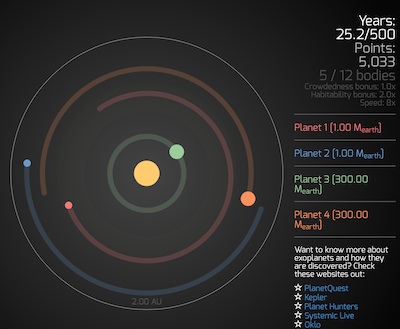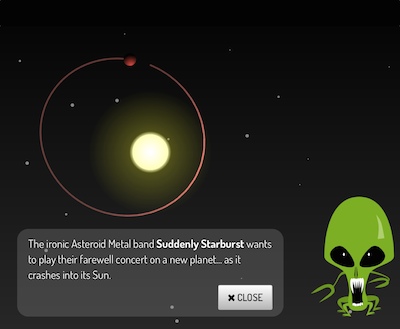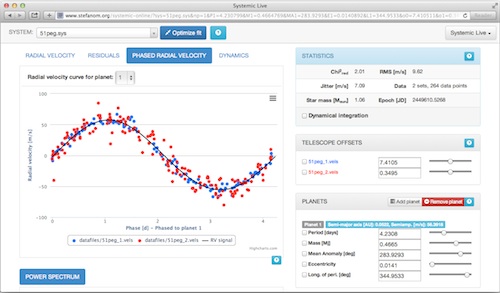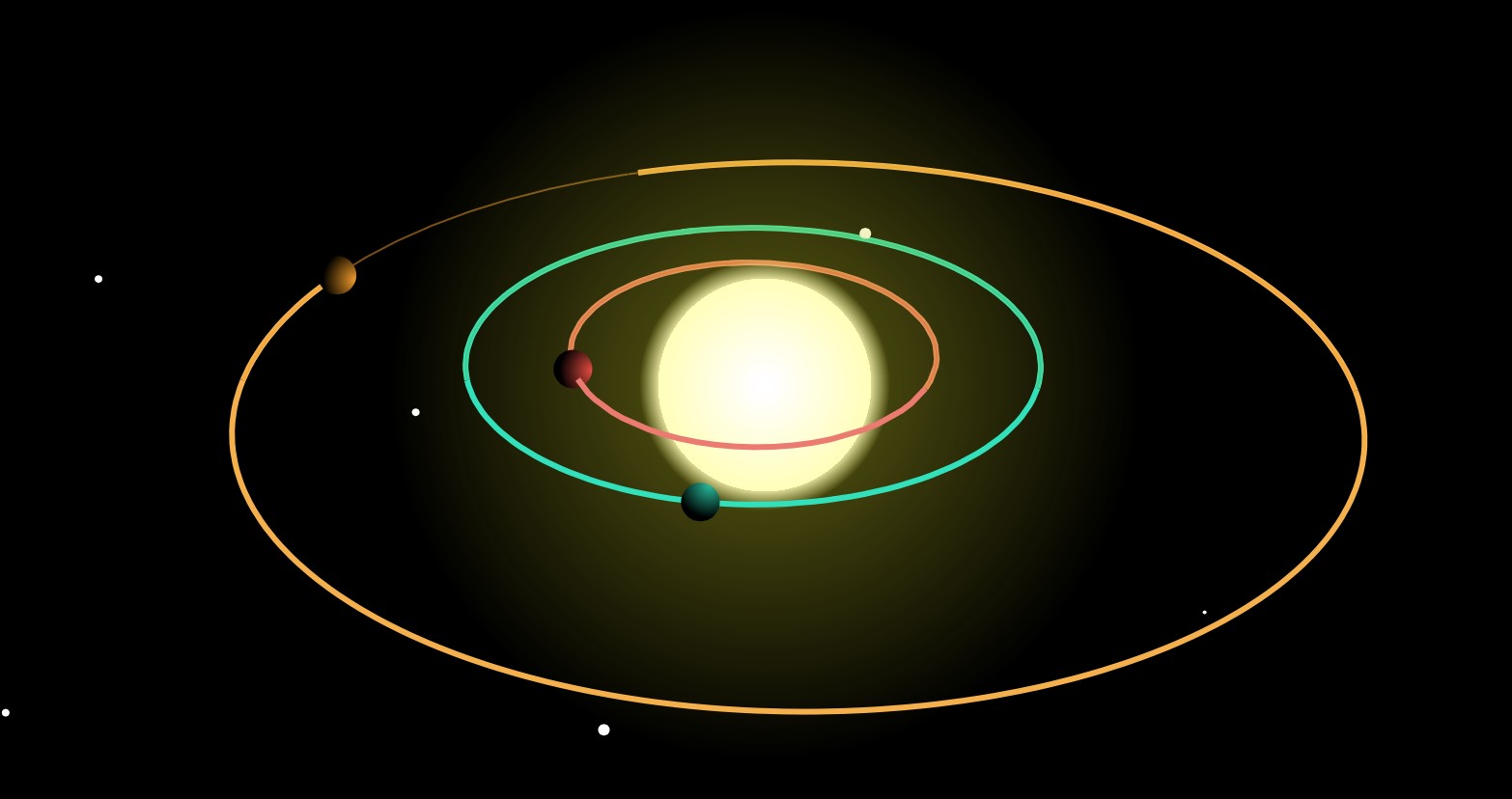SAVE/Point
SAVE/Point is a collaboration of astronomers and educators dedicated to developing new, innovative games and educational applications to teach astronomical concepts at all levels.
Society for Astronomy Visualization and Education
Resources for teachers
- TEKS and NGSS standards
This document lists the relevant TEKS and NGSS standards for the Orbits and Super Planet Crash games. - Sample Homework/Lab for Systemic Live
This document is a collection of 4 problem sets that use Systemic Live. Students analyze four sets of real astronomical data that contain signals due to the presence of exoplanets, replicating the process of scientific discovery. It can be used as a homework or lab appropriate for an upper undergraduate or graduate class.
Our games
A game of gravity.
Super Planet Crash is a browser-based gravity game where players create planetary systems and watch them evolve. The more crowded and chaotic the system, the better! Super Planet Crash has been played more than 12,000,000 times, and it has been featured in articles on The Verge, Huffington Post, io9, Space.com, VICE, & others.
Help an alien civilization design new planetary systems.
PLAY
BETA
RESOURCES FOR TEACHERS
You are the newest employee of the planet-building company Nova Planetia, working for your short-tempered supervisor, Big Boss Reaz-7. Prove yourself worthy of a promotion by designing planetary systems to the exact specifications of your fickle customers.
Our apps
Discover exoplanets using real astronomical data.
Systemic Live is a web application that lets you visualize and analyze real astronomical data from telescopes all around the world in order to discover the signature of a planetary system. Systemic Live is a great educational tool for students, teachers, and enthusiasts interested in exoplanets and data analysis. It has become part of the curricula for undergraduate and graduate classes at several US and world institutions of higher education (see testimonials here).
See how gravity affects the motion of planets
GravityKit is a web app for building solar systems. With GravityKit, you can set up
the position, velocity and mass of each body and observe their motion under the influence
of their mutual gravitational pull. Each planetary system can be saved for later use, or
shared online. It is especially suitable for use as a classroom activity or demo, or as an
interactive gravity simulator for all ages.
About us
The SAVE/Point team is comprised of astronomers and educators. Our mission is creating fun, engaging and scientifically accurate educational activities that are widely accessible and on multiple devices and browsers.
We are committed to delivering new educational platforms that will
- engage students, educators and astronomy enthusiasts through an imaginative gamified experience that rewards learning;
- provide a hands-on "virtual lab" where users can develop an intuition for astronomical concepts and the scientific method;
- supply educators with an array of customizable educational components for use in classrooms and informal educational settings;
- provide a testbed for future assessments of the effectiveness of educational game environments in STEM education.
Our work was funded by the Longhorn Innovation Fund for Technology for 2014-2015.
The team
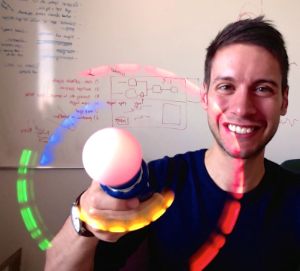
Lead System Engineer
Stefano Meschiari was a W. J. McDonald Postdoctoral Fellow at the University of Texas at Austin.
He is currently a Data Scientist at Stripe.
He is the principal investigator and lead programmer and designer of the SAVE/Point collaboration,
developing apps and games with a focus on astronomy education. His research focuses in understanding
how planetary systems form, discovering new exoplanets, and coming up with new ways to involve the public
in the excitement of the exoplanet age.
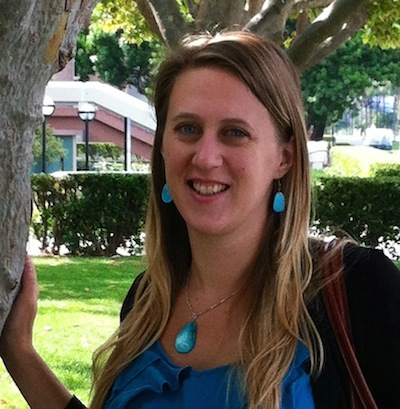
Dr. Randi Ludwig
Space Academy Principal
Randi Ludwig is the Assistant Director of UTeach Primary and faculty in the University of Texas at Austin College of Natural Sciences, where she develops hands-on curricula and teaches science courses designed for elementary education majors. She puts her classroom and curriculum development experience to use in the SAVE/point collaboration by designing learning objectives for game levels, evaluating accessibility for users of many backgrounds, and assessing the effectiveness of game design on user understanding of scientific concepts.

Space Orchestra Director
Joel Green is the Project Scientist in the Office of Public Outreach at Space Telescope Science Institute (STScI), which operates the science mission of the Hubble Space Telescope and James Webb Space Telescope. Previously he was a Research Associate at the University of Texas at Austin. He contributes the original music tracks, story, and assists in level and app design.
Collaborators

Dr. Irina Marinova
Irina Marinova is an adjunct professor of physics at Southwestern University. She has a passion for astronomy education and loves working with K-12 students and teachers. She is working to bring the game apps to public venues in the community.

Dr. Natalie Gosnell
Natalie Gosnell is a W. J. McDonald Postdoctoral Fellow at the University of Texas at Austin. Her research focuses on binary stars including the products of stellar mergers, collisions, or mass transfer. She assists with keeping the SAVE/Point website and app information up to date.
